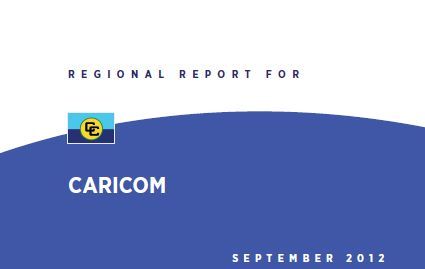 In 2007, in response to the Global Health Research Initiative spearheaded by the Canadian International Development Research Centre, the research program proposal entitled Caribbean EcoHealth Programme (CEHP), which was submitted for review was successful in receiving funding to conduct a variety of ambitious research programs throughout the Caribbean region. Key regional public and environmental health actors within the Caribbean region support the CEHP. These are the Caribbean Epidemiology Centre (CAREC); the Caribbean Environmental Health Institute (CEHI), the Pan American Health Organization (PAHO), the Bermuda Institute for Ocean Studies, the University of the West Indies (St. Augustine and Cave Hill campuses), St. George’s University (Grenada), Ross University School of Medicine (Dominica), Ross University School of Veterinary Medicine (St. Kitts), Laval University (Canada), the Public Health Agency of Canada and, most recently, Canadian World Bank Persistent Organic Pollutants (POPs) Fund. The CEHP program has several research programs one of which is focused on determining the level of prenatal exposures to persistent organic pollutants (POPs), pesticides, two heavy metals–mercury and lead–and zoonotic infections in persons living in the Caribbean region. This report provides the finding of this study from samples taken from pregnant women in CARICOM states. This study is the first to examine zoonotic illnesses at the community level in 10 countries in the Caribbean. Though a pilot study, the findings are significant and warrant further study.
In 2007, in response to the Global Health Research Initiative spearheaded by the Canadian International Development Research Centre, the research program proposal entitled Caribbean EcoHealth Programme (CEHP), which was submitted for review was successful in receiving funding to conduct a variety of ambitious research programs throughout the Caribbean region. Key regional public and environmental health actors within the Caribbean region support the CEHP. These are the Caribbean Epidemiology Centre (CAREC); the Caribbean Environmental Health Institute (CEHI), the Pan American Health Organization (PAHO), the Bermuda Institute for Ocean Studies, the University of the West Indies (St. Augustine and Cave Hill campuses), St. George’s University (Grenada), Ross University School of Medicine (Dominica), Ross University School of Veterinary Medicine (St. Kitts), Laval University (Canada), the Public Health Agency of Canada and, most recently, Canadian World Bank Persistent Organic Pollutants (POPs) Fund. The CEHP program has several research programs one of which is focused on determining the level of prenatal exposures to persistent organic pollutants (POPs), pesticides, two heavy metals–mercury and lead–and zoonotic infections in persons living in the Caribbean region. This report provides the finding of this study from samples taken from pregnant women in CARICOM states. This study is the first to examine zoonotic illnesses at the community level in 10 countries in the Caribbean. Though a pilot study, the findings are significant and warrant further study.
Read full report here: CARICOM ZI Report (PDF)